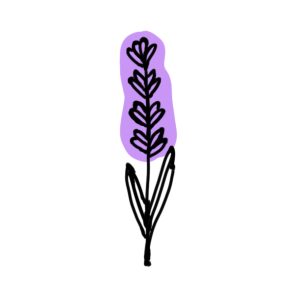 Editor’s Note: The Lavender Letters is a collection of open letters written by members of Ole Miss’ queer community highlighting the many joys and hardships that come with being a member of the LGBTQ+ community in the South — and in particular on this campus. If you are interested in writing one, email Mary Boyte at thedmnews@gmail.com.
Editor’s Note: The Lavender Letters is a collection of open letters written by members of Ole Miss’ queer community highlighting the many joys and hardships that come with being a member of the LGBTQ+ community in the South — and in particular on this campus. If you are interested in writing one, email Mary Boyte at thedmnews@gmail.com.
I first came to UM as a graduate student in 2006 from a much smaller campus in rural northwest Tennessee. While I’m originally from Jackson, Tennessee, a modest-sized city, we had very little visible LGBTQ+ life or safe spaces, and coming out in high school in the late 1990s was a daunting challenge. But I came to Oxford specifically to study William Faulkner and secretly hoped I could learn more about same-sex desire in his writing, even though I wasn’t sure how much support such a project would get.
In my first semester, I regularly attended meetings of the Gay-Straight Alliance, which was the only LGBTQ+ group on campus at the time that I was aware of. Same-sex marriage rights seemed decades away from ever becoming reality.
The alliance held a vigil in honor of Matthew Shepard that October. Shepard was an undergraduate at the University of Wyoming who was murdered in 1998, an event that coincided with my coming out for the first time. The Daily Mississippian published occasional editorials in support of LGBTQ+ rights, including one that argued for Mississippi, rarely a frontrunner in the expansion of civil rights, to embrace same-sex marriage rights in defiance of its troubled history.
The following spring, as a teaching assistant in an American literature class, I came out to my students as part of a discussion about the poetry of Langston Hughes and the multiple levels of meaning in his question, “What happens to the dream deferred?” Friends from the alliance sat in on the class to support me. It felt monumental, like it was something that hadn’t happened in classrooms on the UM campus very often.
I found support in the English department, especially from my mentor, Jaime Harker, who took on the thankless task of running multiple independent studies courses for me to read LGBTQ+ literature. Such courses were not a part of regular course rotations at the graduate level or otherwise at the time. Though by the time I started my doctorate at UM, Jaime was offering a graduate seminar in queer theory.
I was not the only openly queer person in the program, but certainly the few of us queer students felt somewhat on the margins and were always searching for a gay-friendly bar on the Square (Jubilee, the original Blind Pig, Ajax after 9 p.m.).
I do not mean to imply that UM was anti-queer or felt dangerous. Rather, it simply felt like being a queer person was a very individual, singular experience, where our space was on the margins, something we had to create for ourselves. But we sought each other and found ways to make UM and Oxford feel like home.
I defended my dissertation in the summer of 2013, on the day after the Windsor decision by the Supreme Court overturned the Defense of Marriage Act. I spent the next year teaching as academic staff on campus. That October, students disrupted a campus production of “The Laramie Project,” a play about the aftermath of the murder of Matthew Shepard, with anti-gay taunts directed at the actors. The university administration attempted damage control the next day by emphasizing the value of diversity on campus. I began to realize that “diversity” is the word that campus administrators use the morning after something terrible has happened the night before.
Then, in spring 2014, I taught an upper-divisional course in gay and lesbian literature, thanks in no small part to Jaime Harker’s efforts to have that class in the schedule. I regularly teach that course even now in Wisconsin, where I am the LGBTQ+ studies coordinator for a small public university in the southwest corner of the state.
On the first day of that 2014 gay and lesbian literature course, a student waited after class to speak to me. He asked if I would use he/him pronouns — his “preferred pronouns” — as we would say at the time. It was the first time someone had asked me that. Then he said that my class was the first one in which asking his professors to use his correct pronouns didn’t make him feel like vomiting out of fear of the response. It felt monumental, like even in Mississippi, we can move forward together toward a new and fairer whole.














